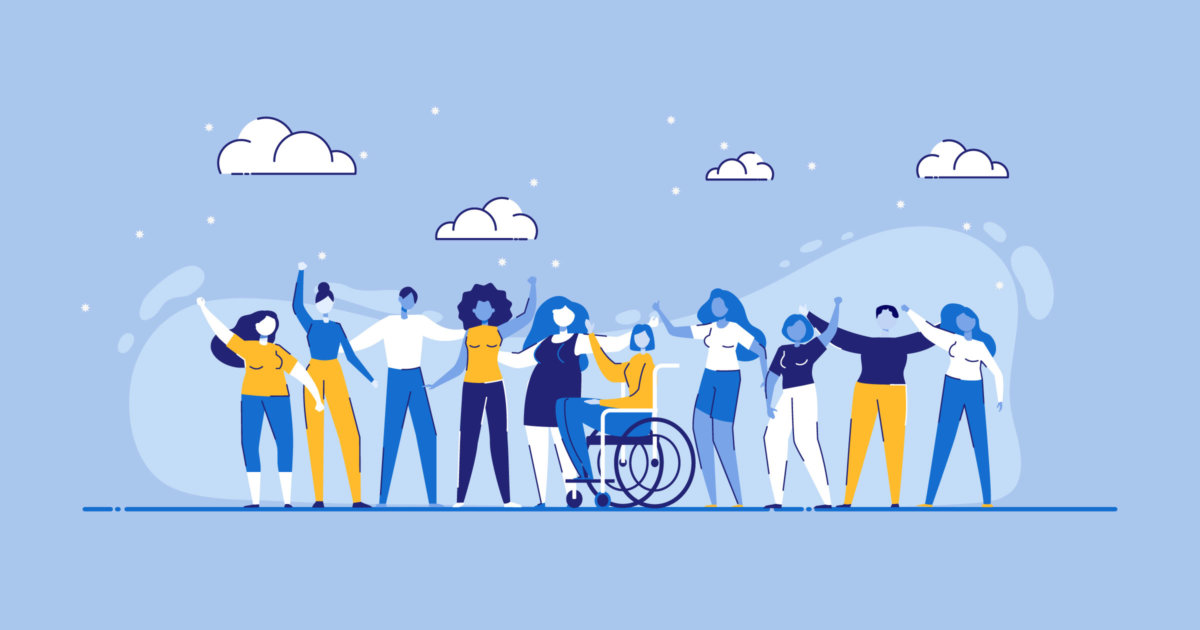All articles published by MIT Sloan Management Review online and in print.
Recently Published

Take a Skills-Based Approach to Culture Change
Organizations can leverage a skills-based approach to culture change to speed the process and address real challenges.

Bed Bath & Bankruptcy: Lessons for Senior Leaders
Bed Bath & Beyond’s bankruptcy exposes the perils of focusing on financials at the expense of customer value creation.

Overcoming the Inclusion Facade
Companies benefit when employees across demographics have an equal opportunity to affect organizational decision-making.

The Consequences of Unacknowledged Grief in the Workplace
A company’s ability and willingness to support employees grieving after a loss can impact its culture and retention.

Workplace Toxicity Is Not Just a Mental Health Issue
Workplace toxicity leads to a host of negative mental and physical health outcomes, particularly for women of color.
Culture & Teamwork

Well-Being Intelligence: A Skill Set for the New World of Work
Improving employees’ mental health and well-being requires managers to first recognize and address their own challenges.

How to Engage Skeptics in Culture Interventions
The skill of perspective taking can help build teams’ psychological safety for creative, collaborative problem-solving.

This New Year, Resolve Against Workaholism
Workaholic behavior can damage organizations and teams; managers can take steps to help employees attain better balance.

Collaboration Is a Key Skill. So Why Aren’t We Teaching It?
New research points to the potential of professional development training for boosting teams’ collaboration skills.

Improve Creative Brainstorming With Constructive Criticism
New research upends the assumption that criticism always impedes creative brainstorming.

Diet, Exercise, and Logging Off? Rethinking Employee Wellness
Companies’ approach to employee health should take into account the effects of social media use on workers’ well-being.

How Hyperflexibility Can Benefit — or Burn Out — Your Team
Policies for unlimited or mandatory time off that aim to combat burnout and boost employee retention can backfire.

The Surprising Impact of Meeting-Free Days
No-meeting days allow for efficient collaboration while preventing focused, heads-down work from being disrupted.

Reimagining Office Density Can Ease Return-to-Work Resistance
Many businesses are unaware that they’ve been creating an exodus from the office by limiting individual workspaces.

How to Prevent the Return to Offices From Being an Emotional Roller Coaster
Leaders can take proactive steps to make workers feel more comfortable about going back to in-person work.

The Top 10 Findings on Resilience and Engagement
A global survey reveals the pandemic’s effect on employee resilience and engagement and points to ways to improve them.

How Organizations Can Promote Employee Wellness, Now and Post-Pandemic
It benefits both workers and companies when leaders proactively support employees’ mental health and wellness.

Overcoming Obstacles to Successful Culture Change
Culture change starts with new actions, not with business leaders identifying or articulating a desired culture.

The Sources of Resilience
A global study of resilience and engagement explores the tools people use to stay strong in a crisis.

Establishing High-Performing Teams: Lessons From Health Care
Effective teams depend on mutually reinforcing functional and cultural change processes.
Data, AI, & Machine Learning

Manage AI Bias Instead of Trying to Eliminate It
It’s impossible to abolish AI bias in the data behind artificial intelligence models, but companies can remediate it.

Why Less Is More in Data Migration
To make data migration more effective, start with a minimum set of viable data, leave out nice-to-have data, and weigh speed vs. quality.

Business Scents: The Rise of Digital Olfaction
Two new branches of digital olfaction technology could help companies use smells to improve the customer experience.

Make Your Crowd Smart
Solving complex problems with crowdsourcing means tailoring the crowd to the problem’s scope.

The Human Factor in AI-Based Decision-Making
New research shows that an individual’s decision-making style informs the choices they make when using AI-based inputs.

Fast-Track Data Monetization With Strategic Data Assets
To monetize data, companies must first transform it so it can be reused and recombined to create new value.

How Swarm Intelligence Blends Global and Local Insight
Swarm systems draw input from individuals and use algorithms to optimize system performance in real time.

AI’s Communication Upsides
New AI applications have immense potential to revolutionize communication and deepen human relationships.
Diversity, Equity, & Inclusion

Boost Employee Confidence and Inclusion by Creating Voice Space
New research offers leaders insights into how they can enhance inclusion at an actionable level in the workplace.
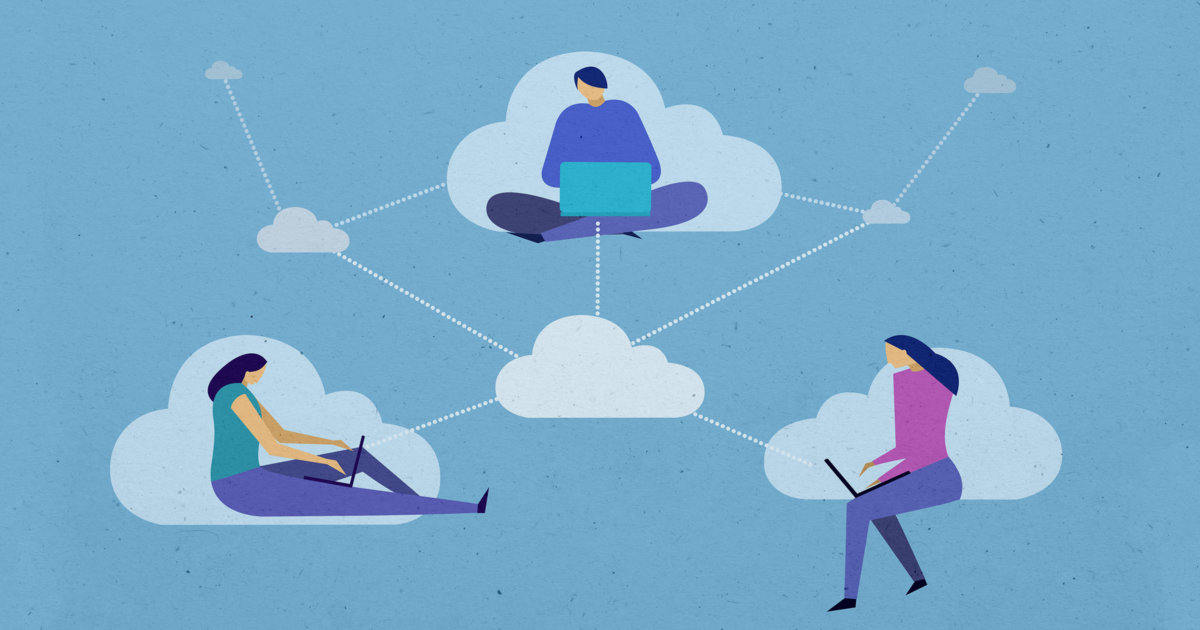
Leveling the Playing Field Through Remote Work
Allowing employees to work from home now and post-pandemic can benefit those with or without disabilities.

Assignments Are Critical Tools to Achieve Workplace Gender Equity
Work assignments can be powerful tools to propel employees’ growth when assessed and used deliberately.

Tackling the Allyship Gap at Work
People can take meaningful steps to become more effective allies for members of marginalized groups at work.

Rethinking Diversity Measures in the Finance Industry
The financial industry’s use of ownership and board membership statistics to measure diversity is insufficient.

Make Pride a Commitment, Not Just a Campaign
To meaningfully support Pride, companies need to focus on employees, customers, and the community.

Effecting Real Progress in Executive Diversity and Inclusion
Why diversity and inclusion efforts often fail to produce the intended changes, and proactive approaches leaders can take.

Confronting the Uncomfortable Reality of Workplace Discrimination
Organizational leaders can begin to address racial discrimination in the workplace by taking strategic actions.

The Opportunity Costs of Weight Bias at Work
Being overweight is highly stigmatized, but companies can take steps to help combat weight discrimination.

Marketing Beyond the Gender Binary
Brands can no longer rely solely on outdated tropes to connect with increasingly diverse consumers.

Addressing Racism, Word by Word
Businesses distracted by the language around racism should instead focus on taking steps to actively prevent it.
Innovation

Mix Creativity With the Right Mindset to Serve Up Innovation
Research finds fear of failure could keep an innovator from launching a new creative endeavor after an early success.

Spark Team Creativity by Embracing Uncertainty
Foster a creative culture by embracing the curious, the uncertain, and the unknown.
History’s Lessons on Competitive Innovation
Rapid exploration and experimentation often outperform a more deliberative approach to problem-solving.

Effective Innovation Begins With Strategic Direction
To get more from their innovation efforts, businesses must first determine what type of change they want to achieve.

Dating Disruption — How Tinder Gamified an Industry
Tinder’s entrance into the dating app industry was a literal game changer.

How Leading Companies Are Innovating Remotely
New research reveals steps that can help remote teams boost innovation and create customer value.

The Unconventional Innovator Who Created Wikipedia
Wikipedia’s creation required the determined efforts of an unconventional, original thinker.
Leadership & Management

How Diversity Can Boost Board Effectiveness
The CARE model is a road map for increasing diversity among organizations’ board members and assessing boards’ impact.

From Glass Ceilings to Glass Cliffs: A Guide to Jumping, Not Falling
Minorities offered a leadership role during a crisis must weigh the opportunity against the increased risk of failure.
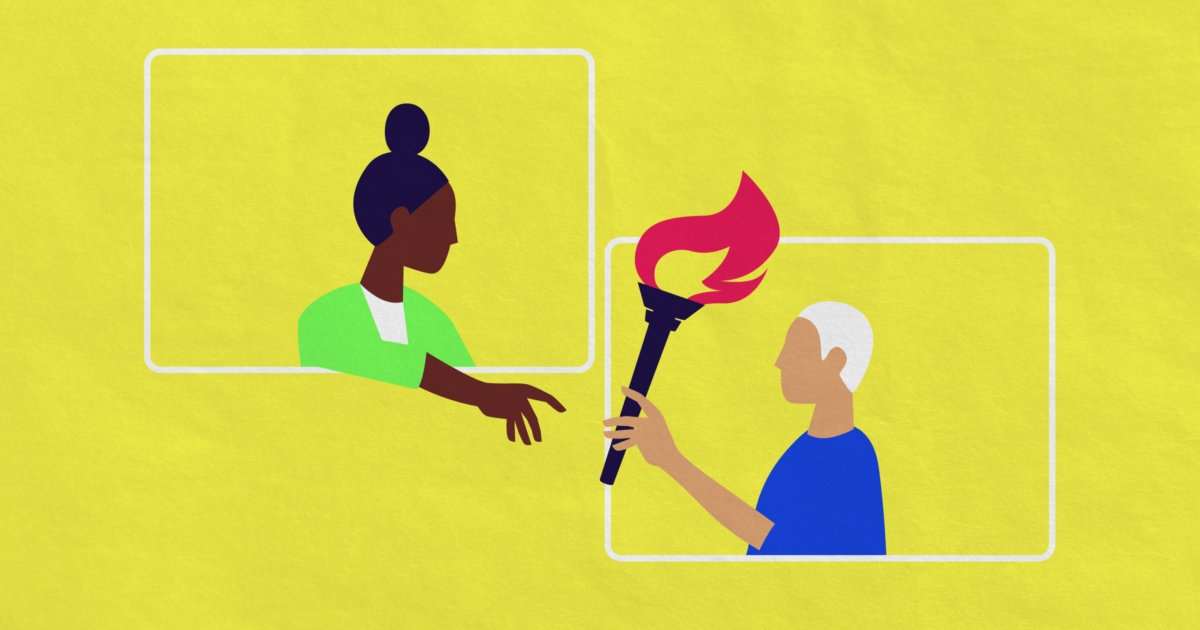
The CEO Is Leaving. Now What?
Craft a plan for the last 100 days before a CEO’s departure to ensure a smooth leadership transition.

Building the Cognitive Budget for Your Most Effective Mind
Cognitive budgeting can help employees at all levels be more intentional about where they direct their mental energy.

Cracking the Culture Code for Successful Digital Transformation
Leaders can successfully execute a digital transformation by achieving cultural balance between continuity and change.

Boomerang CEOs: What Happens When the CEO Comes Back?
A comparative investigation of boomerang and non-boomerang CEOs reveals some nonobvious insights and critical implications for leaders.

What Employees Need to Hear From Leaders in Times of Crisis
During a crisis, employees need frequent, honest communication from organizational and team leaders.

How to Reduce the Risk of Colliding Change Initiatives
New research points to consistency as a pivotal success factor when companies launch concurrent change initiatives.

The Two Roles Leaders Must Play in a Crisis
Disaster managers must be sufficiently flexible to meet stakeholder expectations, depending on the situation.

Leading in Government Demands the Stewardship of Public Trust
Maintaining public trust — a critical leadership responsibility — can be daunting when trust has suffered grievous harm.
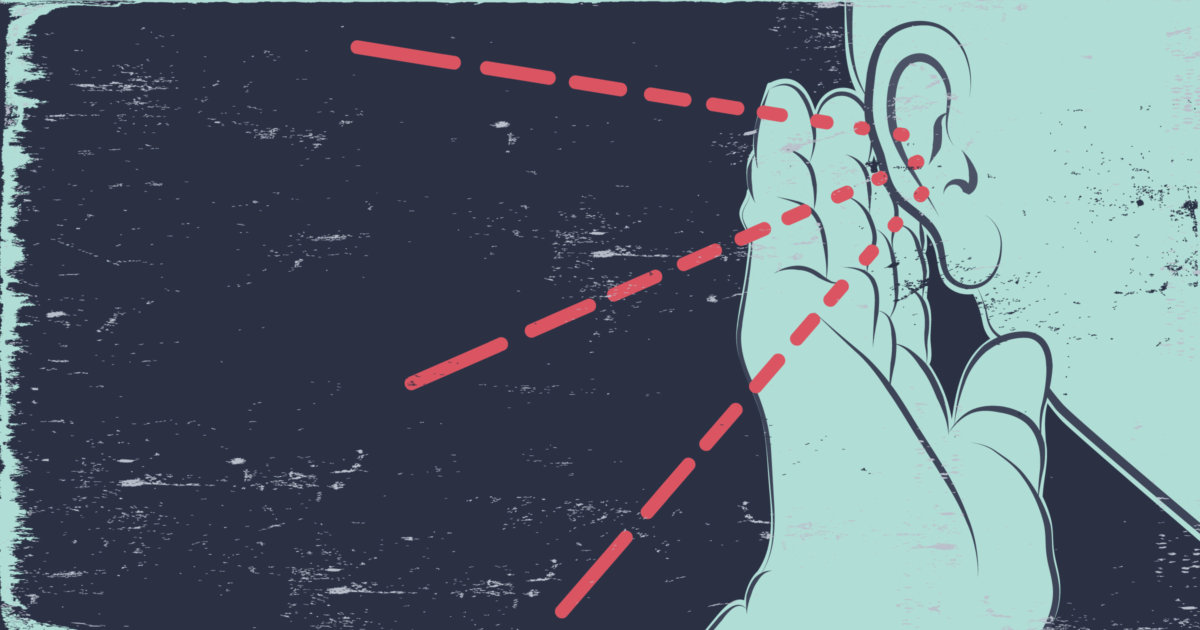
Do Founder CEOs Tune Out Their Teams?
New research explores whether founder CEOs incorporate or ignore advice from their leadership teams.
MIT SMR Columnists

How Far-Reaching Could the Four-Day Workweek Become? | Ben Laker
Experiments show that four-day workweeks can help companies trim costs, retain employees, and boost worker well-being.

Seeing the Unseen: A New Lens on Visibility at Work | Martha Bird
When leaders recognize the perspectives of overlooked populations, it opens up opportunities for innovation and change.

Embrace Mistakes to Build a Learning Culture | Ben Laker
Mistakes and critical incidents can serve as learning opportunities and help build a culture of growth and innovation.

What Does the Four-Day Workweek Mean for the Future of Work? | Ben Laker
Recent research suggests companies should consider offering a four-day workweek to help attract and retain employees.

The Benefits and Risks of Rehiring a Boomerang Employee | Ben Laker
Rehiring a former employee can benefit an employer if the right expectations are put in place.

Why Gig Work Needs to Demonstrate Loyalty, and How to Do It | Ben Laker
Several principles can be applied to create reciprocal loyalty and benefits between organizations and gig workers.

Reimagining the Workspace to Boost Human Connection | Martha Bird
Reimagined workspaces can enable interactions that foster more meaningful human connections in our work lives.

Why Modern Executives Are More Susceptible to Hubris Than Ever | Ben Laker
In the age of the celebrity CEO, too many leaders sacrifice character and good judgment in pursuit of their own success.

Enter the Cube Farm | Martha Bird
The office cubicle is the product of a well-intended design philosophy gone astray.

Why Companies Should Adopt a Hub-and-Spoke Work Model Post-Pandemic | Ben Laker
The hub-and-spoke model of work offers a middle ground between packed offices and the isolation of working at home.

Contextualizing the Office: How and Where Work Gets Done | Martha Bird
Our systems of belief, technology, and cultural practices have shaped what many of us think of as “the office.”
Managing Technology

The Rest of the Cybersecurity Story
Successful cyberattacks often result from isolated decisions made without fully considering the potential consequences.

Why Companies Must Embrace Microservices and Modular Thinking
Monolithic, highly interdependent organizations can become modular ones by embracing microservices.

Accelerate Digital Transformation With ‘No-Code’ Software Tools
No-code software development platforms enable nontechnical teams to create and deploy simple apps quickly.

Managing Crisis Communications in the Cloud Era
A data breach crisis must be met with transparency to maintain stakeholders’ trust.

Prepare to Protect Your Customers’ Voices
The threat of voice-based cybercrime is growing along with the use of voice-directed digital assistants.

Cybersecurity for a Remote Workforce
In a virtual work environment, organizations must reassess their cybersecurity risk profile and IT strategy.

Digital Convenience Threatens Cybersecurity
Seamless connectivity dramatically increases convenience along with cyber risk.
Recruitment, Retention, & Development

Job, Career, or Purpose?
Leaders should learn to manage — and value — employees whose sense of purpose comes from outside the organization.

Employer Branding Is the New Marketing Imperative
CMOs and their marketing teams are well positioned to help companies build a brand that attracts and retains top talent.

Dump Traditional Reviews to Better Measure Performance
We need to move on to a new way of measuring — and accelerating — employee performance.

Why Workplace Hierarchies Matter in Skill Transformation
Leaders need to recognize workplace hierarchies to create an effective learning environment for employees.
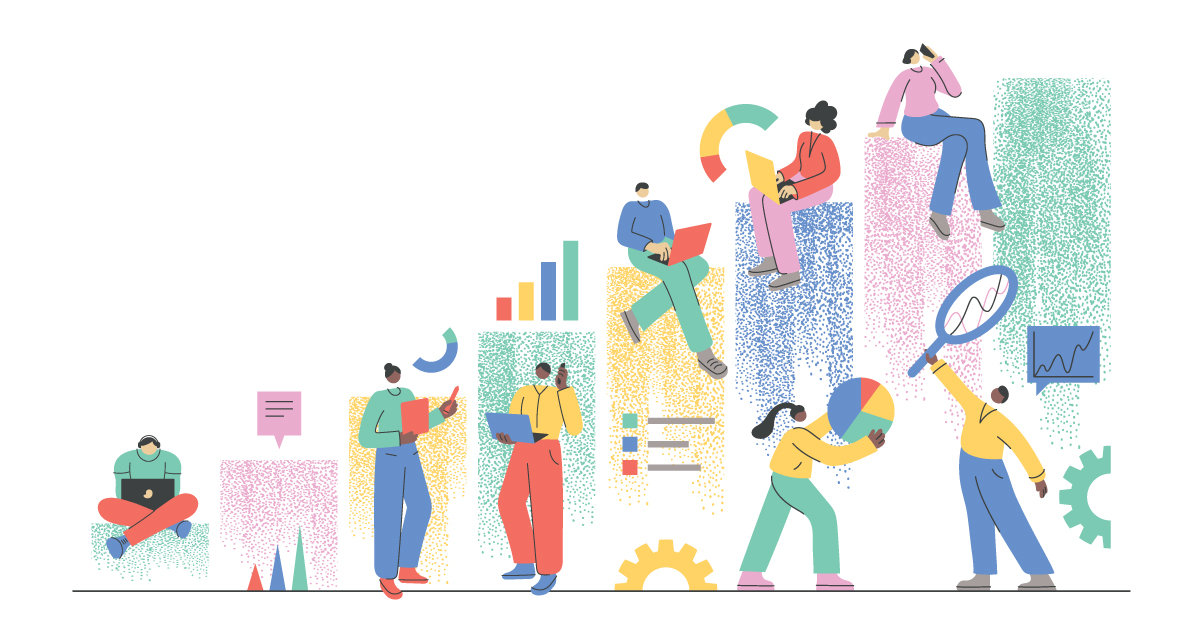
Invest In People to Best Manage Through Disruption
The most effective response to disruption is a long-view focus on employee development.

Where Are the Robots?
Automation anxiety is a distraction. The bigger issue is blue-collar job growth amid labor scarcity.

The New Strategic Road Map for Attracting and Retaining Working Parents
New research exposes the conflicts working parents may face when weighing concerns about work and career geography.

Four Steps to Successful Virtual Hiring
New research points to four ways organizations can improve their approach to virtual hiring practices.

How to Develop Early-Career Talent Virtually
Research points to five ways organizations can better support early-career employees in a fully remote work environment.

Do You Know Who Your Best Interviewers Are?
Identifying your best interviewers can substantially reduce hiring expenses and increase the quality of hires.

Five Strategies to Retain Women in Tech
The most important factor in attracting and retaining women in the tech sector is having an inclusive workplace culture.

How Job Crafting Can Make Work More Satisfying
Job crafting, a proactive take on job redesign, can help improve employee engagement and satisfaction.
Remote & Hybrid Work

What Does the Future of Work Sound Like?
Research shows that companies can improve employees’ workplace experiences through the optimal use of sound.

How Shifts in Remote Behavior Affect Employee Well-Being
Leaders can improve remote employees’ well-being and productivity by helping them structure their workdays better.

Equity in the Hybrid Office
Leaders and their employees must partner to achieve equity and access for both in-person and remote employees.

Coworking Spaces Offer a Post-Pandemic Office Alternative
Coworking arrangements might be the ideal choice for employers and employees alike in the wake of the pandemic.

How to Combat Virtual Meeting Fatigue
Leaders can make meetings more effective and less fatiguing by incorporating feedback from their teams.

Why Time Signals Still Matter When Working Remotely
Being mindful about time signals can help managers make remote work easier for their employees.

The Surprising Science Behind Successful Remote Meetings
Evidence-based insights and practical tips can help you improve your remote meetings.
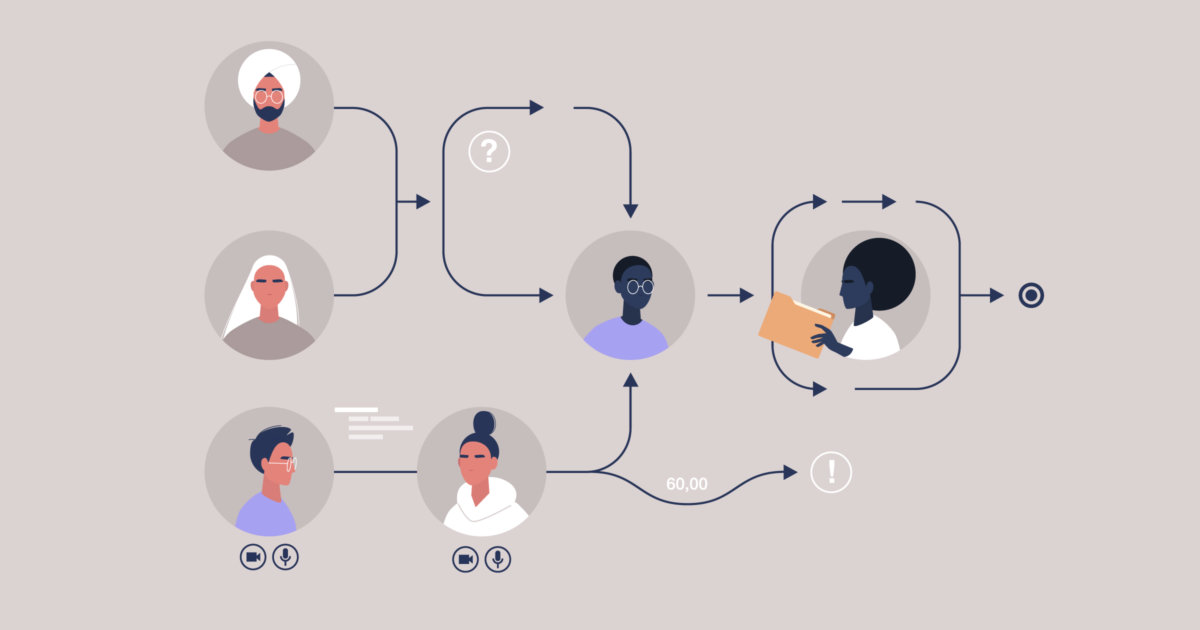
Embrace Delegation as a Skill to Strengthen Remote Teams
In the context of remote work, leaders must reconsider conventional delegation methods.

The Collective Intelligence of Remote Teams
Remote work can be as effective as in-person work with the right people and collaborative processes.

Leading Remotely Requires New Communication Strategies
The pandemic challenges managers to find a more productive way to meet with employees.

Overcoming Remote Work Challenges
Organizations can overcome three major remote-work communication challenges with these strategies.
Strategy
The Crisis in Ukraine Spells More Trouble for Semiconductor Supply
Semiconductor manufacturers must invest in alternative sources for key materials to mitigate supply chain risks.

Great Strategy Considers More Than Customers and Investors
Great strategy addresses investor and consumer interests and also recognizes the value of nontraditional stakeholders.

Gain Competitive Advantage by Transcending the Front-Line Paradox
Front-line employees are uniquely aware of the early symptoms of coming change. Management should heed their insights.

Don’t Let Your Strategy Be Hijacked
Strategy hijacks — situations in which companies must adjust their strategies due to consumer backlash — can be predicted and avoided.

What Makes Successful Frameworks Rise Above the Rest
Seven evaluation criteria leaders can use to assess and strengthen the business frameworks they create.

Three Proactive Response Strategies to COVID-19 Business Challenges
Amid pandemic-driven market changes, opportunities await organizations that proactively adjust their business strategies.

Is Your Brand Purpose at Risk of Being Obsolete?
Three trending emotional priorities show signs of becoming long-term fixtures in consumers’ collective conscience.

Reviving High-Touch Business Models for the Social Distancing Era
Social distancing has renewed consumer interest in high-touch, full-service business models.

Changing How We Think About Change
A fundamental source of confusion about change is the use of that single term — change — to refer to three distinct strategies.

Responding to Crises With Speed and Agility
The pandemic has shown how both speed and agility can help drive global business during a crisis.
Social Responsibility & Sustainability
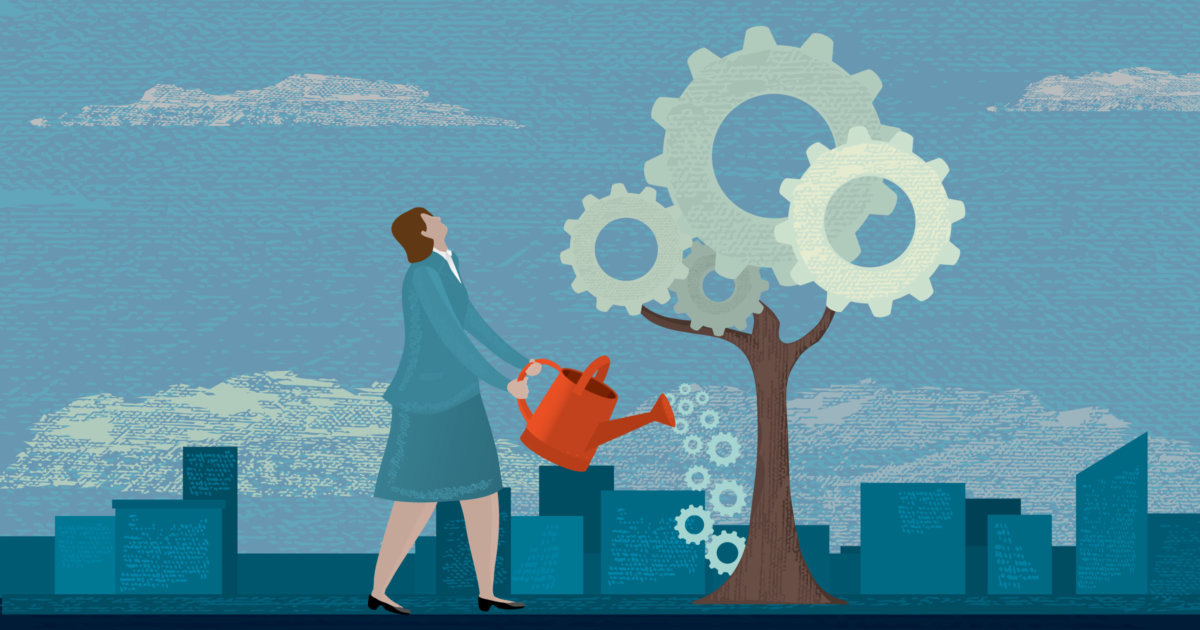
Businesspeople Must Reconnect With Nature to Save the Planet
Forming a stronger bond with nature can benefit business leaders, their organizations, and the environment.

Boosting Charitable Giving Can Also Boost Profits
As brands compete for holiday shoppers, they would do well to learn this lesson: Donations can boost sales and profits.

To Transition to Net Zero, Model the Alternative
Businesses should use scenario analysis to assess the costs of transitioning — or not — to net-zero carbon emissions.

Why Companies Practice Corporate Social Responsibility
An analysis of 200 surveys over 20 years reveals three primary motivations behind companies’ embrace of CSR.

Business Unusual: The Pandemic Forces a Social Reset
The pandemic spurred a social reset, and companies must respond to customers’ and employees’ changed expectations.

Craft Your Brand Strategy to Ensure Racial Justice
It takes deep commitment and involvement to develop a brand strategy that embraces racial justice.

Reconfigure Your Board to Boost Cooperative Advantage
Companies can gain cooperative advantage by appointing community development and sustainability advocates to their boards.

Corporate Responsibility in the Digital Era
It’s time to merge sustainability and digitization, too often treated as separate concerns.

Six Ways Companies Can Promote and Protect Human Rights
Companies can and should take meaningful action in response to human rights abuses by governments.

Cooperative Advantage: Rethinking the Company’s Purpose
Companies can better support individual and community well-being through a people-centered approach to profitability.


